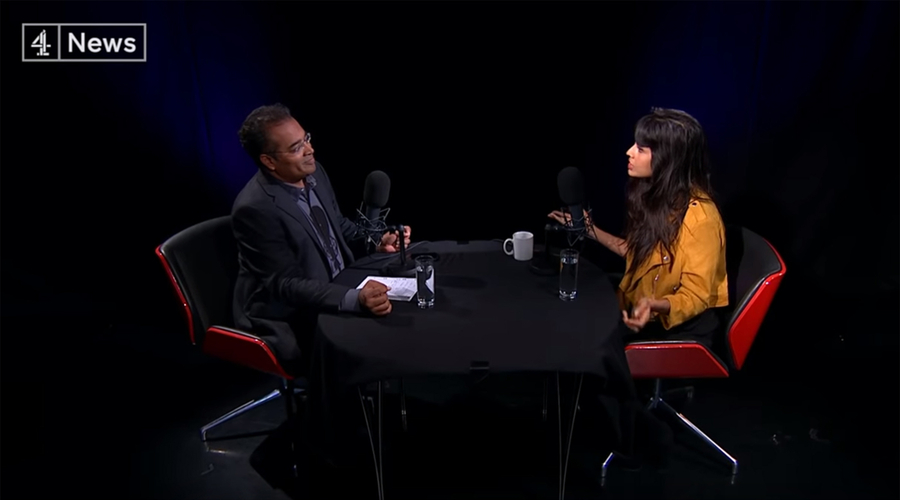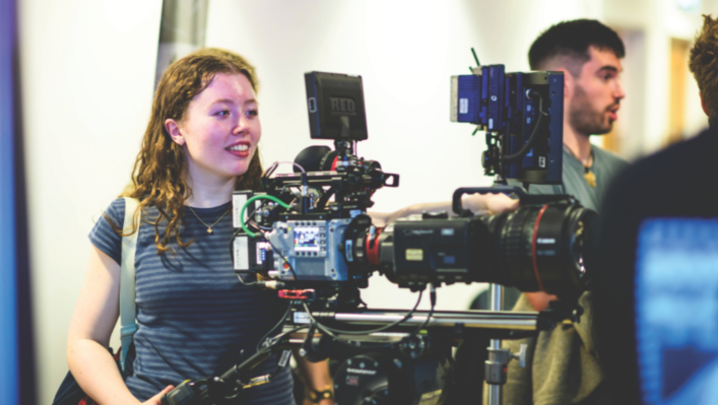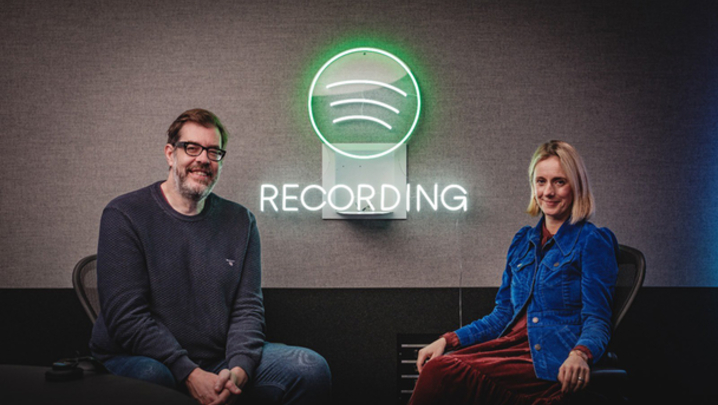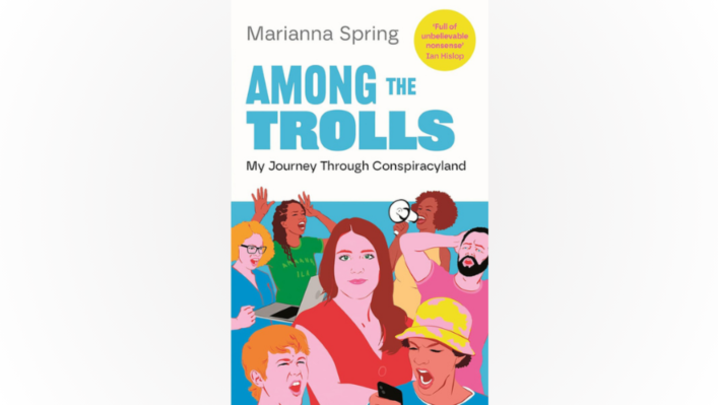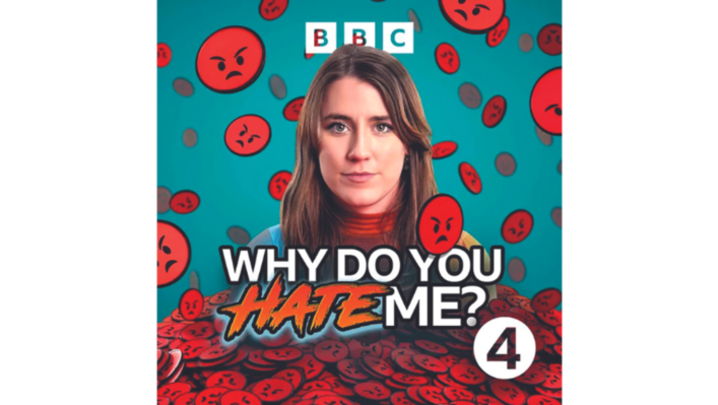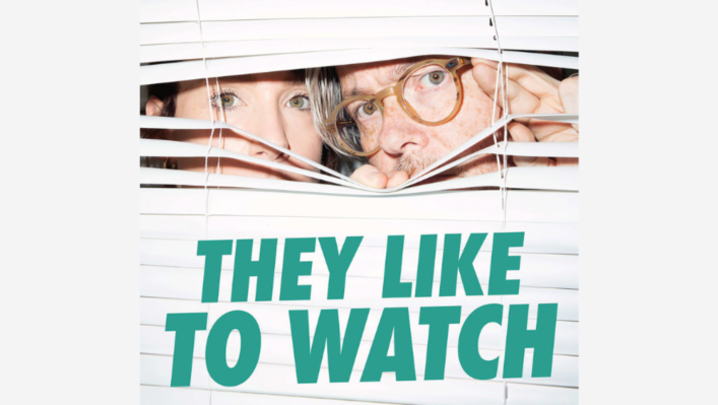The booming audio format offers programme-makers the chance to take a deep dive into stories and ideas that inspire them.
Podcasts are not all about comedy, true crime and self-help – increasingly, news and current affairs are fuelling the boom in the audio format.
At the beginning of this month, the BBC’s Global News Podcast, The Economist Podcasts and The Rest Is Politics, which is hosted by New Labour spin doctor Alastair Campbell and ex-Tory minister Rory Stewart, all featured in the top 10 most popular UK podcasts.
At an RTS Futures event in late May, two podcast pros – BBC specialist disinformation and social media reporter Marianna Spring and Nina Hodgson, senior producer for Channel 4 News’s The Fourcast and the long-form interview podcast Ways to Change the World (with Krishnan Guru-Murthy), discussed all things podcast, including offering helpful tips to newcomers (see below).
Spring is the host of two BBC Radio 4 podcasts: War on Truth, about the information war that is going on hand in hand with the actual war in Ukraine, and Death by Conspiracy?, which tells the story of a pandemic denier, Gary Matthews, who died of Covid-19.
The audio format gives news and current affairs specialists the space – denied them in brief bulletins – to investigate topics and people’s experiences in greater depth. Spring told the RTS: “It’s wonderful to be able to spend hours at a time with someone… to really understand their story. There’s a lot of time for talking and listening.”
The death of Matthews, an artist and photographer from Shrewsbury, made the headlines at the beginning of 2021 and gave Spring the hook for her 10-part podcast, Death by Conspiracy? “[It was] a story that was emblematic of a wider issue that I’d spent a lot of time investigating – it’s really powerful to have one person at the heart of [a podcast],” she explained.
War on Truth follows the stories of a series of people who “found themselves caught up in the information war.… It sounds so much more powerful when you are hearing from real people… you want to hear people’s emotions and about their experiences, as well as the more investigative elements.”
One episode focuses on a woman who was informed that her son, a border guard, had been killed on Snake Island, in the Black Sea, having famously told the attacking forces, “Russian warship: go fuck yourself”. The truth was more complicated as her son was being held in Russia before his return to Ukraine as part of a prisoner of war exchange.
Spring recalled: “When you’re listening to a podcast you want to experience all the highs and lows with the person you’re talking to.”
The BBC journalist, a Russian speaker, spoke to the woman, Tetyana, in Russian. “I have found it really useful to be able to communicate… in someone’s native language – in her case, Russian – because they are able to explain what it felt like and they talk you through the experience in a very vivid way, which is really essential to podcasts,” said Spring.
The Fourcast, hosted by Channel 4 News digital reporter Kiran Moodley, goes out three times a week and “allows us to take a longer, slower look at some evolving news stories from the week”, explained Hodgson.
“We have so much more time to talk and think about what we want to do,” she continued.
More of Moodley’s personality – and more emotion – comes through in the podcast than a short TV news package permits, explained Hodgson. “You can have light and shade within something, which, if you only had three minutes, you’d have to be very serious about. You can take a slightly different tone.”
In podcasts, added Spring, “personality is really important; I think news has often been scared of personality… whereas I think it actually enriches what we’re saying, and can make it really powerful and interesting.”
Report by Matthew Bell. The RTS Futures event ‘Making podcasts: A mini-masterclass’ was held on 31 May. It was chaired and produced by Ed Gove, multimedia producer at Channel 4 News.
How to become a podcaster

Ideas are the currency of podcasts
‘You need an [idea] that’s really interesting… but you also need to be able to stand that up for 25 minutes,’ said Nina Hodgson from Channel 4 News. ‘Show you have the basic skills and really understand the concept of podcasts and why things work for them.’
‘Think of things that are emblematic of wider issues… one person who’s been affected by something terrible or had a certain experience that you can really interrogate and tell [us more about],’ said the BBC’s Marianna Spring. ‘Some of the most popular podcasts on the BBC have done that, from unpicking what happened on Capitol Hill in [Gabriel Gatehouse’s] The Coming Storm on Radio 4 to Fairy Meadow, which was about a little girl who’d gone missing.
‘Find something that really catches your attention [that] you can investigate in more depth and that has a range of different voices.’
Build relationships
‘A lot of the reporting I do is inspired or triggered by people getting in touch with me and telling me about their own experiences – something that they want me to investigate in terms of social media or disinformation,’ said Spring.
‘Put in the effort to meet them.… If people trust you, they are much more willing to share things that they might feel apprehensive about.… It makes the journalism so much better and a podcast so much more powerful if you’re hearing from someone in a really open and genuine way.’
Give it a go
Early in a career, said Hodgson, ‘there can be a lot of imposter syndrome.… Don’t bend the truth… be honest if you’re just starting out.… Being a journalist is about talking to people about their stories and investigating things.… So, if you’re interested in something, have the confidence to speak to someone and develop a story.’
‘You can get training in how to use certain software or how to record stuff,’ added Spring, but ‘a lot of it is learning by doing – writing a podcast script, interviewing someone… there’s no special podcast course that you can go to and suddenly you’re a qualified podcaster’.
Hodgson noted: ‘Unless you are making a podcast for the BBC or Channel 4, people aren’t expecting it to be studio quality.’
Spring advised: ‘Be courageous, take risks…. Have a go yourself… you might not have many people listening to your podcast, but that’s totally fine because it’s a space for you to test stuff out and to show people [later] when you are pitching things. Never feel embarrassed or silly – just give it a shot.’

